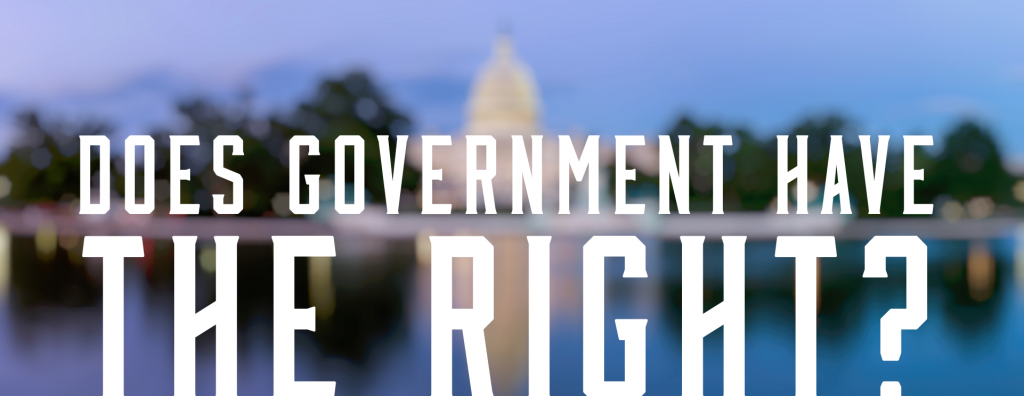Does government have the right to…
… force businesses to close?
… mandate churches empty?
… make people stay home?
… keep us six feet apart?
… require we wear masks?
… check our temperatures?
… stop political rallies?
… prohibit sporting events?
… limit home dinner parties?
This is not about whether we should do these things to be safe and socially responsible. It’s about whether the government has the legal right to require it and imprison us if we don’t.
If the government does have the right, which level of government? Federal? State? Local? Forget local government because it’s subservient to your state government. So the question is, does state government, federal
The allocation of powers between the states and federal government is determined by the U.S. Constitution. The federal government has specific, enumerated powers (like coining money, regulating interstate commerce, granting patents/copyrights, establishing bankruptcy laws, raising an army, and levying taxes for defense and the general welfare).
Under the 10th Amendment the states are delegated powers not specifically given to the federal government, which has been broadly interpreted to allow states to do most anything they want in “establishing and enforcing laws that protect the welfare, safety, and health of the public.”
Based on the broad powers reserved to the states, from a legal perspective (this is not a political statement), President Trump’s statement, “When somebody is president of the United States the authority is total,” is not accurate. Governors hold the power to determine how their states respond to COVID-19.
But there are limitations on state power. The Bill of Rights (first 10 amendments to the U.S. Constitution) initially only restricted the federal government from taking away the rights and freedoms it granted us, but courts later applied this restriction to the states as well (under what’s known as the incorporation doctrine).
Since states cannot violate our Bill of Rights freedoms, can governors make us do (or not do) the things I listed above? For example, let’s look at the First Amendment. These are among our most sacred and court protected liberties.
THE FIRST AMENDMENT
“Congress (and now the states) shall make no law respecting an establishment of religion, or prohibiting the free exercise thereof; or abridging the freedom of speech, or of the press; or the right of the people peaceably to assemble, and to petition the Government for a redress of grievances.”
Does “prohibiting the free exercise” of religion keep governors from preventing church services? Three churches already sued California Governor Newsom on this issue.
Does our right of free speech allow governors to mandate we wear face masks? Courts have said our right of free speech protects our right to wear or not wear what we want (as long as it isn’t indecent or doesn’t contain certain types of inflammatory statements).
Our goal right now should be to work together to get through this. However, it’s likely that powerful forces with much at stake will challenge state power on issues that have never been litigated… like prohibiting church services, mandating that we wear face masks, requiring that we don’t enter restaurants unless our temperature is taken, and limiting our First Amendment right to peaceably assemble.
For fun, while you’re stuck at home, take another look at the “does government have the right” questions I proposed above. Pretend you are a court. Look at the Bill of Rights. Then ask yourself, does your state have the right?
Next week I’ll tell you what I think.
“The only true wisdom is in knowing that you know nothing.”
– Socrates












